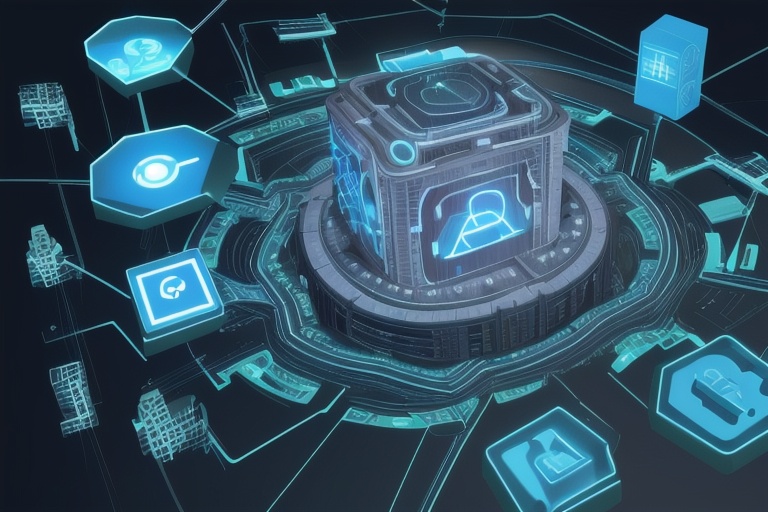Artificial Intelligence, or AI, is increasingly becoming the invisible but essential backbone of our daily experiences. From the moment we rise in the morning until we lay our heads down at night, AI technologies stealthily but significantly shape the fabric of our routines and influence the breadth of our decisions. At its core, AI refers to the capacity of computer systems to emulate human cognitive functions such as learning, reasoning, and problem-solving. AI can be categorized into several types: narrow or weak AI, which is designed to perform specific tasks; general or strong AI, which has the capability to understand and execute any intellectual task that a human being can; and artificial superintelligence, which denotes an intelligence surpassing the brightest human minds.
Artificial Intelligence, or AI, is increasingly becoming the invisible but essential backbone of our daily experiences. From the moment we rise in the morning until we lay our heads down at night, AI technologies stealthily but significantly shape the fabric of our routines and influence the breadth of our decisions. At its core, AI refers to the capacity of computer systems to emulate human cognitive functions such as learning, reasoning, and problem-solving. AI can be categorized into several types: narrow or weak AI, which is designed to perform specific tasks; general or strong AI, which has the capability to understand and execute any intellectual task that a human being can; and artificial superintelligence, which denotes an intelligence surpassing the brightest human minds.
The burgeoning AI market, expected to grow exponentially in the coming years, reflects the technolgy's increasing ubiquity and significance across the globe. Here, we shall delve into how AI weaves into our daily existence, examining its varied benefits and potential drawbacks, to better understand this technological marvel that's reshaping the way we live.
Benefits of AI in Daily Life
AI's impact on our lives is manifest in several domains, promising to enhance our quality of life and streamline complex processes. In healthcare, for instance, AI systems provide cutting-edge diagnostic tools and treatment plans, promising unparalleled precision. This technology offers a pathway to personalized medicine, where treatments and healthcare plans are tailored to the individual, potentially increasing the efficacy and reducing side effects.
Marketers, too, employ AI for targeting and personalization of campaigns. By analyzing consumer data patterns, AI can identify potential customer preferences, ensuring that marketing strategies resonate better with their intended audiences. Consequently, companies can optimize their advertising spend and engage more effectively with consumers.
Educational experiences have been redefined by AI, introducing personalized learning methodologies. These systems can adapt in real-time to a learner's abilities, offering a customized educational journey. This innovation stands to democratize education, providing students with learning experiences previously accessible only to those with specialized needs or resources.
Creativity is another realm where AI contributes significantly. By providing new tools and methods for creatives, AI augments human inventiveness, offering novel bridges between imagination and creation. It might seem counter-intuitive to pair creativity with computing, but AI has proven that it can inspire artists, musicians, writers, and designers to push the boundaries of their crafts.
Transportation and mobility sectors benefit from the enhanced safety and efficiency AI brings. Autonomous vehicles, for instance, are poised to revolutionize how we move. With the ability to learn from vast datasets and make lightning-fast decisions, AI holds the promise of reducing traffic incidents and optimizing traffic flow, crafting a future of safer and more efficient roadways.
Challenges and Considerations
Despite these advantages, AI's journey is not without obstacles. Ethical questions loom large: the invasion of privacy and the potential abuse of AI-fueled surveillance pose serious societal concerns. Jobs traditionally done by humans are at risk of being automated, and although new jobs will emerge, the transition may cause economic and social hardships for many.
Moreover, the lack of human touch and creativity can sometimes be acutely felt. AI systems, no matter how sophisticated, cannot yet replicate the nuances of human interaction or the depth of genuine creativity. Additionally, AI's propensity for bias—a reflection of the data it's fed—can reinforce societal prejudices unless carefully managed.
Transparency is another critical issue. As AI becomes more complex, understanding how certain decisions are made by AI systems is a challenge, raising questions about accountability, especially when these algorithms have significant impacts on people's lives.
Ensuring that the development and implementation of AI technologies are governed by ethical considerations and transparency is fundamental to mitigating these challenges. Responsible AI will pave the way for a future in which humans and machines coexist harmoniously, tackling intricate problems and enhancing our collective existence.
Advancing AI Education
As AI's horizons expand, it calls for a workforce ready to harness its potential. Selecting the appropriate educational program for professionals aiming to remain at the forefront of this field is thus paramount. Comprehensive AI courses, like those offered by Simplilearn, can equip individuals with the breadth of skills and knowledge necessary to pioneer industry transformations and realize their full capabilities. Embracing AI, while conscientiously upholding ethical standards and ensuring judicious deployment, can indeed create a brighter future underpinned by the power of artificial intelligence.
Leveraging AI's strengths while addressing its weaknesses is essential as we navigate the new realities it presents. By committing to ethical and responsible innovation, we can foster a synergy between AI and humanity, driving progress and enriching our lives in unprecedented ways. It is not merely about adopting technology; it's about shaping a world where technology serves the greater good, reflecting our highest principles and aspirations.
Information for this article was gathered from the following source.



